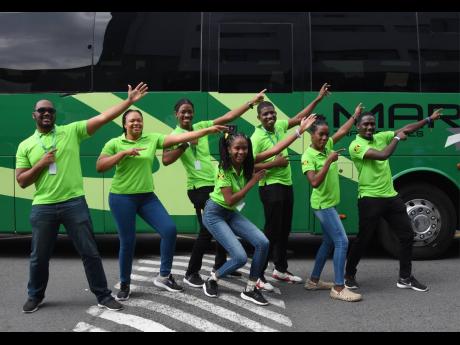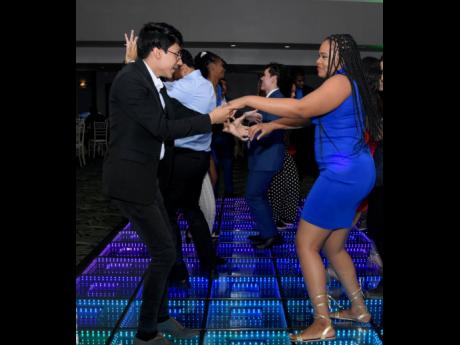J’can students get taste of tech future with Huawei
San José, Costa Rica:
EXCITED to show off and put to use their technological, cultural, and soft skills, seven local university students said the 10th staging of the Huawei Seeds for the Future Programme held in San José, Costa Rica, was eye-opening.
The programme brought together 95 students from Central America and the Caribbean from October 9 to 16. University students who attended were from Jamaica Panama, Guatemala, Trinidad & Tobago, the Dominican Republic, Venezuela, Honduras, Costa Rica, and Suriname.
Speaking with The Gleaner, Gawayne Wright, a final-year electronics engineering student at The University of the West Indies, Mona, said that the programme gave them a clearer understanding of artificial intelligence (AI).
“Artificial intelligence, for example, is one of the different technologies that we were introduced to, using AI in society in terms of image recognition and speech processing. The AI is built on current, the basic current. That is now the basis of computers being able to do so much in a short space of time because of how fast current travels. The AI is a model that we can create to make decisions for us, so we give it a lot of information,” Wright explained.
“An example is we want to train the AI model, specifically a convolutional neural network, you want to feed it a lot of information and want it to determine the difference between a dog and a cat. We would feed it thousands of images and different angles of dogs and the same for cats. When you give it an input and say ‘I want you to tell me what this is’, [for] example looking through a camera and you want the model to tell you what it is, it would run through different layers based on how you would train it. [The] more data you would have given it, the better it would be able to determine if it’s a dog or cat,” he added.
Once-in-a-lifetime opportunity
According to the students, this was a once-in-a-lifetime opportunity for most of them, and they think it is important to share the information that was learnt.
They believe that every Jamaican should also know about digital power using cleaner electricity, electric vehicles, and that all of the information learnt is important to daily living.
Renae Campbell, a University of Technology, Jamaica electrical and computer engineering student, said learning about 5G was a completely new experience.
“[The] 5G is, basically, 100 times faster. Yes, Jamaica doesn’t have 5G, but the thing is that you can’t design new technology thinking about what you have today. You have to think about where the technology landscape will be when the device comes out, which will be in the next few years,” Campbell shared.
“Huawei Technologies was instrumental in the shift from 3G to 4G in Jamaica they are actually working on getting Jamaica up to speed in terms of 5G. We expect in the next two to three years, 5G technology will be available in Jamaica, and [we] will be able to utilise that on our devices. In the meantime, it will also be able to use 4G, just at a higher latency,” Campbell told The Gleaner.
During her presentation, Carolina Herrera, communications manager of Huawei Central America and the Caribbean, said that Huawei believes the world is increasingly driven by digital technologies and believes that no one should be left behind.
“TECH4ALL is Huawei ‘s long-term digital inclusion initiative, which centres on developing digital inclusion and empowerment initiatives with measurable outcomes, which aims to help accelerate the United Nations’ Sustainable Development Goals (SDGs),” she said.
Herrera added: “Huawei is collaborating with 40+ TECH4ALL partners in promoting digital inclusion. In Latin America, we found out there are two fields that are a perfect fit for our TECH4ALL initiative. Education, and as a UNESCO report notes, Latin America remains the most unequal region in the world and the environment in Latin America has been termed ‘the Biodiversity Superpower’ because of its forests, but in Latin America, the forest loss is extraordinarily serious. We’d like to focus on the environment and education in Latin America. We already have some projects in progress in Latin America.”


